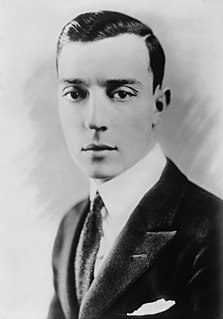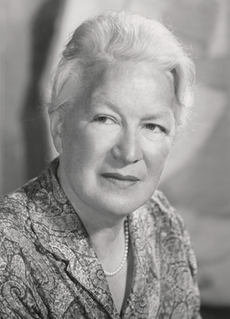A Quote by George Hickenlooper
I was very inspired by Les Blank's film 'Burden of Dreams.' I think what's unique about his film and the two I've made is that they're close examinations of filmmakers and how their own emotional experiences reflect in the material they're rendering, and vice versa - how that material sometimes colors their own lives.
Related Quotes
The first thing I did in the studio was to want to tear that camera to pieces. I had to know how that film got into the cutting room, what you did to it in there, how you projected it, how you finally got the picture together, how you made things match. The technical part of pictures is what interested me. Material was the last thing in the world I thought about. You only had to turn me loose on the set and I`d have material in two minutes, because I`d been doing it all my life.
The motion picture is like journalism in that, more than any of the other arts, it confers celebrity. Not just on people - on acts, and objects, and places, and ways of life. The camera brings a kind of stardom to them all. I therefore doubt that film can ever argue effectively against its own material: that a genuine antiwar film, say, can be made on the basis of even the ugliest battle scenes ... No matter what filmmakers intend, film always argues yes.
To spend any time with someone who is among the top five film composers of the last 50 years is pure gold dust. I mean, not necessarily stylistically, because everyone is different in what their music sounds like, but the approach and how to look at a film, how to think about a film, how to decide what you want to do, how to think about characters, how to think about art, how to think about narrative, how to liaise with producers, how to liaise with directors.
You have to get beyond your own precious inner experiences. The actor cannot afford to look only to his own life for all his material nor pull strictly from his own experience to find his acting choices and feelings. The ideas of the great playwrights are almost always larger than the experiences of even the best actors.
As soon as I finished film school I was thinking about, how do I get to feature films? It took about eight years, and I'm still working. Feature films was not the end goal. Feature films was one of the stages. Getting to the point of the Coen brothers or Tarantino, where you're writing your own material and have the budget to do it properly, that's the end goal, and I'm close to that.
I think 'Two Towers' is a completely distinct film from 'Fellowship of the Ring' or 'Return of the King.' I think that you can watch them as a group and watch how the story evolves, but I think each one was made in its own entirety, and each one has its own palate of sound and music and color and characterization.
The principal problem is that textual data and material remains are often incomplete and sometimes lack adequate context, in order to know precisely how they correlate. Sometimes all we can say is that the textual data and the material remains are probably related but how exactly can't be said until additional discoveries are made.
Man stands alone in the universe, a unique product of a long, unconscious, impersonal, material process with unique understanding and potentialities. These he owes to no one but himself, and it is to himself that he is responsible. He is not the creature of uncontrollable and undeterminable forces, but is his own master. He can and must decide and manage his own destiny.
I've consciously taken on material that's a bit too much for me but not an overreach. The first movie, just about performances. 'The Town,' I learned how to work broader material, develop tension, direct bigger scenes, action sequences. 'Argo,' I experimented with film stock, widened the scope of my geography.
How to avoid cliche at the root of conception? Practice sincerity. If we've come by ... material honestly, through our own personal experience or imagination, we may rightly claim it as our own. ... The way to make material your own is to look for it in yourself. ... It should be a story that only you can tell, as only you can tell it.






































